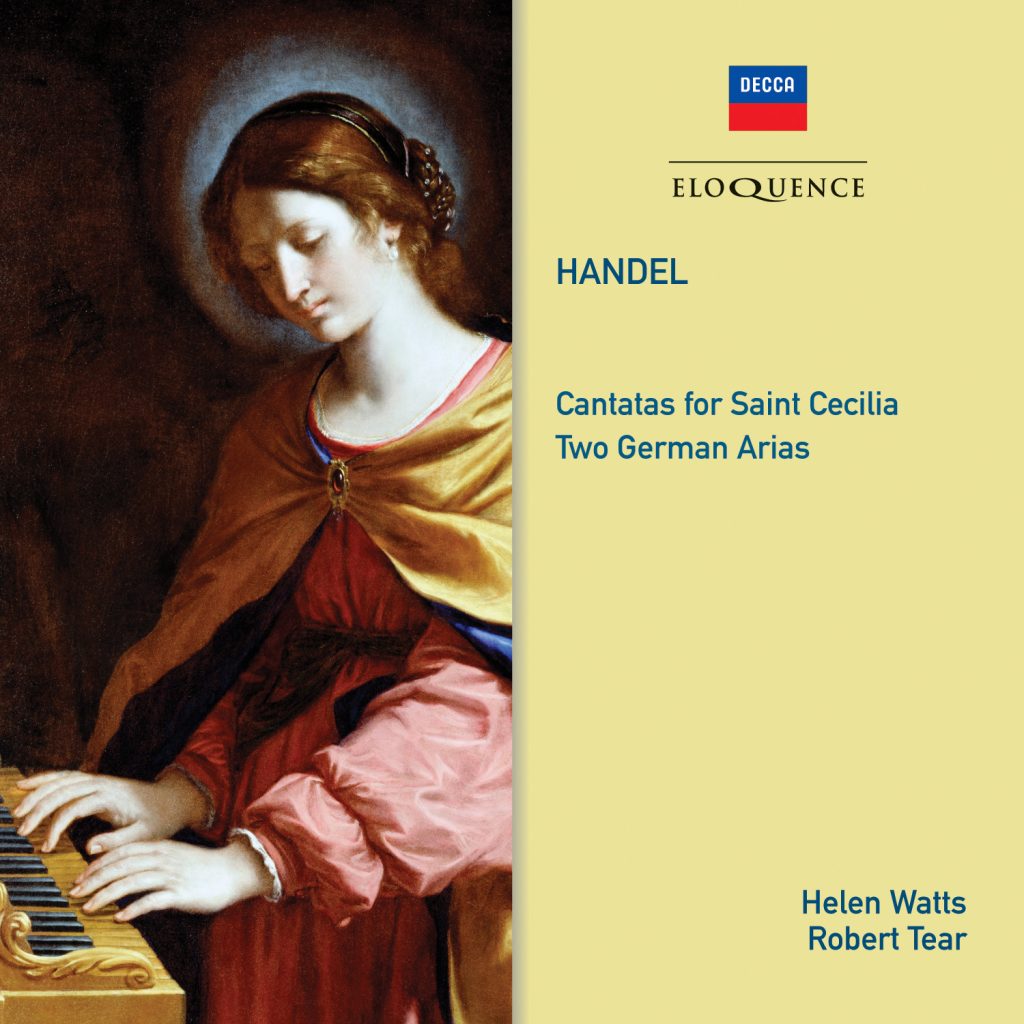Of the works by Handel presented here, three are cantatas devoted to the Patron Saint of music, St. Cecilia, another is an Italian cantata that was probably presented for a private patron in Rome while the remaining two works are drawn from Handel’s unique set of ‘Neun Deutsche Arien’ (Nos. 4 & 6 in the supposed original numbering), composed around 1724 to texts by Barthold Heinrich Brockes, the Hamburg poet and city official whose vernacular text of the Passion was set to music by several eighteenth-century composers, including Handel.
Brockes himself was pleased to note of the German Arias that ‘the world-renowned virtuoso, Mr. Handel, set these to music in a very special manner.’ They have attracted many fine singers on record but few with so acute a feeling for Handel’s word-painting as the tenor, Robert Tear.
The three Italian cantatas composed between 1707 and 1737 and sung by the great Welsh contralto Helen Watts, display the singer’s complete command of Italian, her flair for dramatic declamation and her highly sophisticated and agile coloratura technique, surprising perhaps to those who hear in her voice the typical heavier English “oratorio” contralto sound.
The British harpsichordist, musicologist and conductor, Raymond Leppard directed these performances with Helen Watts from the harpsichord (built by Thomas Goff) with his colleagues of the English Chamber Orchestra providing stylish accompaniments. Watts lent distinction to many Handel recordings of the 1960s and 70s, including ‘Messiah’ directed by Sir Colin Davis as well as pioneering recordings of ‘Jephtha’ and ‘Semele’ (reissued on Decca Eloquence 482 5055).
GEORGE FRIDERIC HANDEL
Cantata ‘Splenda l’alba in oriente’, HWV 166
Cantata ‘Carco sempre di gloria’, HWV 87
Cantata ‘Tu Fedel? Tu Costante?’, HWV 171
Helen Watts, contralto
English Chamber Orchestra
Raymond Leppard
Cantata ‘Look down harmonious Saint’, HWV 124
Neun Deutschen Arien:
No. 6: Meine Seele hört im Sehen, HWV 207
No. 4 : Süsse Stille, sanfter Quelle, HWV 205
Robert Tear, tenor
Academy of St. Martin in the Fields
Neville Marriner
Recording Producer: Michael Bremner
Balance Engineers: Kenneth Wilkinson (Helen Watts); Stanley Goodall, Peter van Biene (Robert Tear)
Recording Locations: Kingsway Hall, London, UK, 16–17 March 1961 (Helen Watts); St. John’s, Smith Square, London, UK, 27–29 November 1969 (Robert Tear)
Original LP Releases: L’Oiseau-Lyre SOL 60046 (Helen Watts); Argo ZRG 661 (Robert Tear)
Remastering Engineer: Chris Bernauer
‘Helen Watts, with her exceptionally flexible and well-focused contralto voice and excellent breath control fulfils the technical demands more than competently … Raymond Leppard gets wonderfully spirited playing from the English Chamber Orchestra … an immensely enjoyable record.’ Gramophone, April 1962

